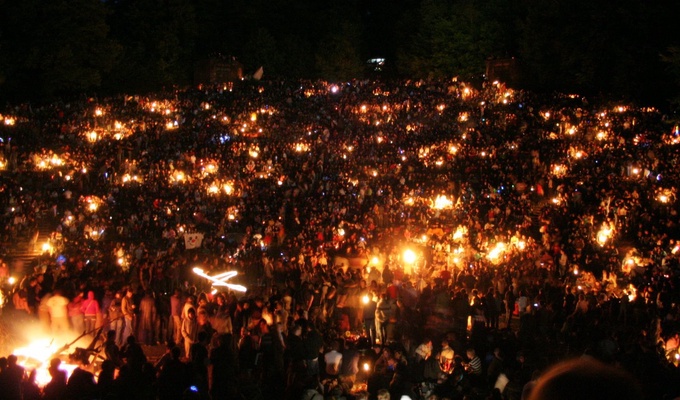Walpurgis Night, an abbreviation of Saint Walpurgis Night, also known as Saint Walpurga's Eve, is the eve of the Christian feast day of Saint Walpurga, an 8th-century abbess in Francia, and is celebrated on the night of 30 April and the day of 1 May. This feast commemorates the canonization of Saint Walpurga and the movement of her relics to Eichstätt, both of which occurred on 1 May 870.
Saint Walpurga was hailed by the Christians of Germany for battling "pest, rabies, and whooping cough, as well as against witchcraft". Christians prayed to God through the intercession of Saint Walpurga in order to protect themselves from witchcraft, as Saint Walpurga was successful in converting the local populace to Christianity. In parts of Europe, people continue to light bonfires on Saint Walpurga's Eve in order to ward off evil spirits and witches. Others have historically made Christian pilgrimages to Saint Walburga's tomb in Eichstätt on the Feast of Saint Walburga, often obtaining vials of Saint Walburga's oil.
It is suggested that Walpurgis Night is linked with older May Day festivals in northern Europe, which also involved lighting bonfires at night, for example the Gaelic festival Beltane.
Local variants of Walpurgis Night are observed throughout Northern and Central Europe in the Netherlands, Germany, the Czech Republic, Slovakia, Slovenia, Sweden, Lithuania, Latvia, Finland, and Estonia. In Finland, Denmark and Norway, the tradition with bonfires to ward off the witches is observed as Saint John's Eve, which commemorates the Nativity of Saint John the Baptist.
